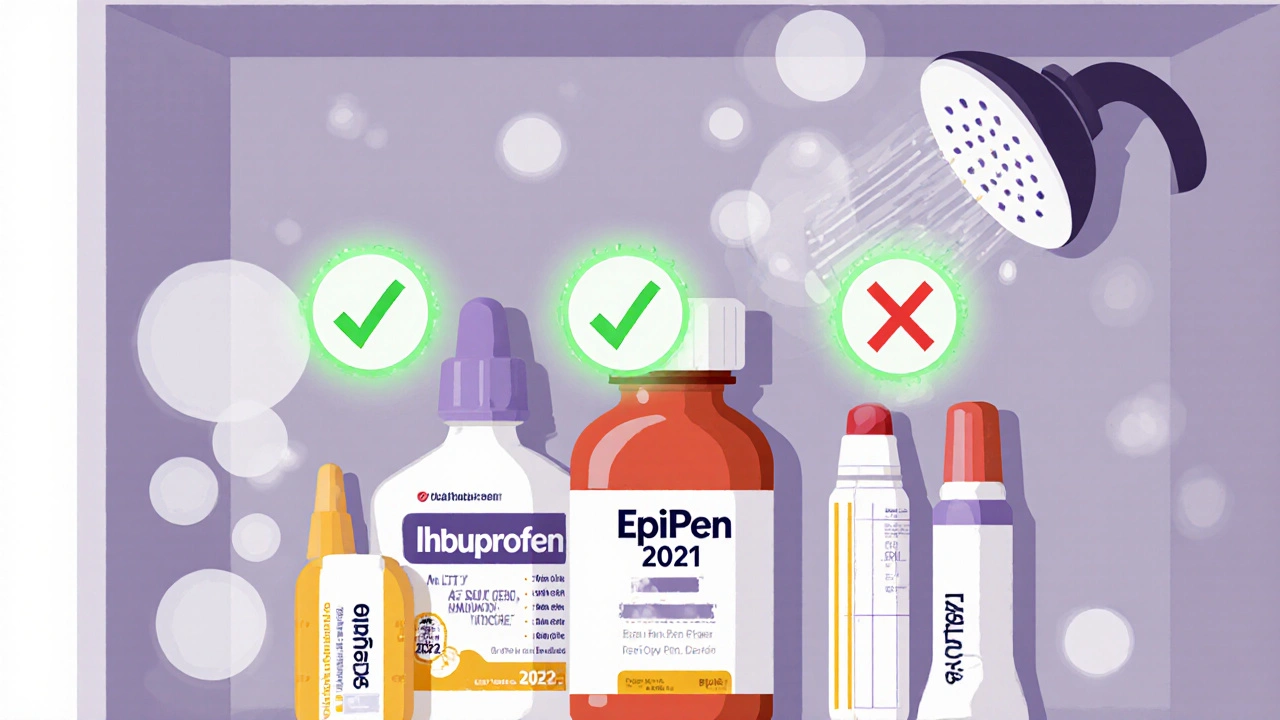
Most of us have a drawer or cabinet full of old pills-maybe a bottle of ibuprofen from last winter’s cold, or that antihistamine you bought during allergy season two years ago. You look at the expiration date and wonder: is it still safe to take? The answer isn’t simple. Some expired meds are fine. Others could be dangerous. And the difference often comes down to what’s inside the bottle, how it’s stored, and why you need it.
What Does an Expiration Date Actually Mean?
The expiration date on your OTC medicine isn’t a ‘use-by’ label like milk. It’s the last day the manufacturer guarantees the drug will work as intended and stay safe under proper storage. The FDA has required these dates since 1979-not because pills turn toxic after that date, but because they can lose strength over time. Think of it like a battery. It still has charge after the warranty expires, but you can’t be sure how much.
Most pills and capsules are stable for years after their printed date. A Harvard Medical School study found that 88% of solid medications stored in their original containers at room temperature kept at least 90% of their potency one to two years past expiration. That means your 2023 bottle of Tylenol might still work fine in 2025.
Which Medications Are Safe to Use After Expiration?
Not all meds age the same. Some hold up surprisingly well. Others don’t.
Generally safe (if stored well):
- Acetaminophen (Tylenol) and ibuprofen (Advil): These pain relievers maintain 85-90% effectiveness up to two years past expiration, according to University Hospitals’ lab tests.
- Loratadine (Claritin): Antihistamines like Claritin show almost no degradation-even five years after expiration, if kept dry and cool.
- Antacids (Tums, Pepcid): These are chemically stable and rarely lose potency.
These are the kinds of meds you might reach for when you’ve got a headache or seasonal allergies. If they’re a few months past expiration and look normal, they’re probably still doing their job.
Which Expired Medications Are Risky?
Some drugs don’t just weaken-they become unsafe.
Never use expired:
- Insulin: Even a slight drop in potency can cause dangerous blood sugar spikes or drops. This isn’t a gamble you can afford.
- Nitroglycerin: Used for heart attacks, this medication loses up to 50% of its strength within six months of expiration. In an emergency, that could mean the difference between life and death.
- Epinephrine (EpiPen): If your EpiPen expires and you have a severe allergic reaction, you might not get the dose you need. Replace it on time.
- Antibiotics (like tetracycline): Expired tetracycline has been linked to kidney damage since the 1960s. Even if it doesn’t make you sick right away, sub-potent antibiotics can let infections grow stronger-and lead to antibiotic resistance.
- Eye drops: These are sterile. Once expired, 72% develop harmful bacteria within three months. Using them could cause serious eye infections.
- Liquid medications: Syrups, suspensions, and cough medicines are more prone to bacterial growth. One study found 43% of expired liquids showed contamination within six months.
If you’re unsure, don’t guess. Throw it out.
Storage Matters More Than You Think
Where you keep your meds affects how long they last. Heat, moisture, and light are the enemies.
The FDA found that storing medicines above 86°F (30°C) causes potency to drop three times faster than if kept at or below 77°F (25°C). That means your bathroom cabinet? Not ideal. Humidity from showers breaks down pills. Sunlight through a window? Can degrade active ingredients.
Best place? A cool, dry drawer-like in your bedroom. Keep pills in their original bottles. Transferring them to a pill organizer or ziplock bag reduces shelf life by 40%, according to University Hospitals. The packaging isn’t just for looks-it protects the medicine from air and moisture.
How to Tell If a Medication Has Gone Bad
Expiration dates aren’t the only clue. Look, smell, and touch.
Here’s what to watch for:
- Tablets that crumble, crack, or change color
- Capsules that stick together or feel sticky
- Liquids that are cloudy, separated, or have floating particles
- Any unusual odor-like vinegar, mold, or chemical smell
- Eye drops that change color or become cloudy
If you see any of this, don’t take it. Even if it’s days before the expiration date, something’s wrong. The chemical structure has broken down. You’re not just risking reduced effectiveness-you’re risking harm.
What Do Experts Really Say?
Pharmacists aren’t all on the same page.
James Reissig, a clinical pharmacist, says: “Very few medications become toxic after expiration. Most just lose strength.” He’s right-there’s almost no evidence that expired ibuprofen or allergy pills turn poisonous.
But Kristie Coots, a pharmacy manager, warns: “I tell patients to stick to the printed date. If you’re taking something for a chronic condition, you can’t afford to be unsure.” That’s especially true for aspirin taken daily for heart health. If it’s weak, it won’t protect you.
Harvard’s Dr. Pace puts it simply: “A month past expiration on an allergy pill? Probably fine. An expired heart medication? Don’t risk it.”
The FDA’s official stance is strict: “Once the expiration date has passed, there is no guarantee the medicine will be safe or effective.” They’re not wrong. But they’re also not saying every pill is dangerous. They’re covering every possible risk-because the cost of one bad outcome is too high.
Real People, Real Experiences
People are using expired meds every day-and they’re sharing what happens.
On Reddit’s r/pharmacy, 147 users reported cases where expired OTC meds didn’t work. 63% said ibuprofen lost its pain-killing effect within a year. On Drugs.com, 28% of 1,245 users admitted using expired meds for minor issues. Of those, 89% said antihistamines still helped-just not as well.
But 17% reported bad outcomes. Nine people said expired liquid antibiotics led to longer infections. One user took expired amoxicillin for a sinus infection, got worse, and ended up in the ER with a bacterial resistance issue.
Amazon reviews show people are more worried about expiration dates on allergy meds than painkillers. That makes sense. Allergies can flare up suddenly. You need the drug to work now.
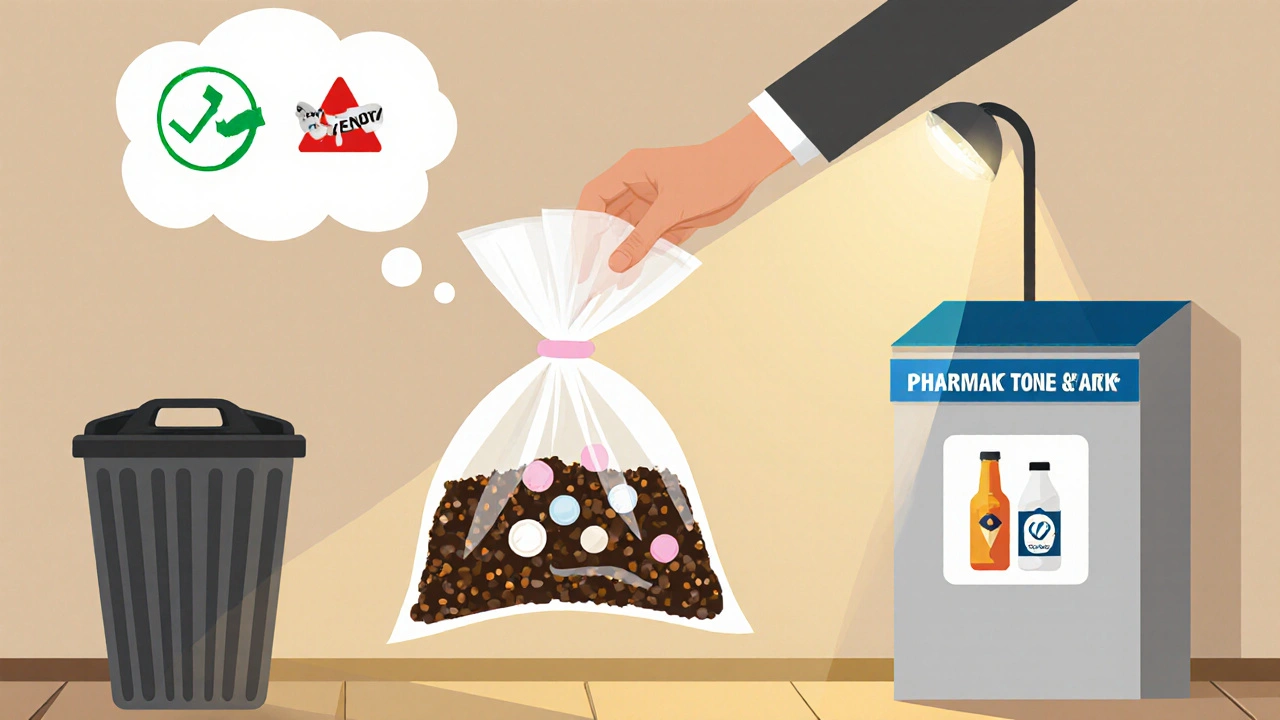
What Should You Do?
Here’s a simple decision tree:
- Is it a critical medicine? (Insulin, EpiPen, nitroglycerin, heart meds, antibiotics) → Replace it. Now.
- Is it a liquid or eye drop? → Throw it out. Even if it looks fine.
- Is it a solid pill (ibuprofen, Tylenol, Claritin) and less than 2 years past expiration? → Check for changes in appearance or smell. If it looks normal, it’s probably okay for occasional use.
- Is it for a chronic condition? (Daily aspirin, thyroid meds, etc.) → Replace it. You need consistent dosing.
- Is it for a minor issue? (Headache, runny nose, heartburn) → Use it cautiously. If it doesn’t work, get a new one.
Bottom line: Don’t panic. But don’t ignore it either.
How to Dispose of Expired Medications Safely
Don’t flush them unless they’re opioids or other high-risk drugs. The FDA recommends flushing only those that could be deadly if accidentally ingested by a child or pet.
For most OTC meds:
- Take pills out of the bottle.
- Mix them with something unappetizing-used coffee grounds, cat litter, or dirt.
- Put them in a sealed plastic bag.
- Throw the bag in the trash.
Pharmacists say 87% of them recommend this method. It keeps kids and pets safe and stops people from digging through the trash for pills.
Some pharmacies and police stations offer take-back programs. Check your local government website. It’s the cleanest way to dispose of meds.
The Bigger Picture: Why This Matters
68% of U.S. households have expired meds sitting around. That’s a lot of unused medicine-and a lot of risk.
On one side, people throw away perfectly good pills. The NIH estimates this costs $765 million a year in wasted money.
On the other side, people take expired antibiotics or heart meds and end up in the hospital. That costs $1.2 billion a year in extra care.
The FDA is working on solutions. New packaging with sensors that show real-time potency is in testing. Imagine a bottle that glows green if the drug is still good. That’s coming soon.
Until then, use common sense. Know what’s in your cabinet. Store meds right. When in doubt, throw it out-or ask a pharmacist.
Medicines aren’t magic. They’re chemicals. And like any chemical, they change over time. Your health isn’t worth guessing.
9 Comments
Sharley Agarwal
November 24, 2025 AT 18:00 PM
Don’t take expired pills. Period.
prasad gaude
November 26, 2025 AT 15:54 PM
In India, we’ve always been pragmatic about this. My grandmother used to say, ‘If the pill still looks like a pill, it still works.’ And she lived to 94. But then again, she also drank water from the same cup for three days and said, ‘It’s just been blessed.’ Modern science says one thing, tradition says another. I think the truth lies somewhere between ‘throw it out’ and ‘it’s fine if it doesn’t taste like chalk.’ Still, I wouldn’t risk an EpiPen. Or insulin. Or anything that keeps me alive. But for a headache? I’ll take the 2022 Advil. Let the FDA worry about lawsuits.
Jennifer Griffith
November 27, 2025 AT 06:41 AM
tbh i just take em anyway. who even checks dates anymore? i had a bottle of tylenol from 2019 and it worked fine. also why do we even have expiration dates? seems like a corporate scam to sell more pills. also i keep my meds in the bathroom because it’s convenient. who cares if it’s humid?
Patricia McElhinney
November 28, 2025 AT 14:11 PM
While I appreciate the anecdotal tone of this piece, it is fundamentally irresponsible to suggest that pharmaceutical stability can be assessed visually or through anecdotal user reports. The FDA’s position is not merely a legal safeguard-it is a bioethical imperative. The degradation kinetics of active pharmaceutical ingredients are non-linear, unpredictable, and often catalyzed by environmental factors not accounted for in home storage. Furthermore, the referenced Harvard study, while peer-reviewed, does not account for batch variability, excipient degradation, or the potential for microbial contamination in solid dosage forms. To imply that ‘if it looks fine, it’s okay’ is a dangerous oversimplification that could result in therapeutic failure, antimicrobial resistance, or even systemic toxicity. I urge all readers to consult a licensed pharmacist before consuming any expired medication, regardless of perceived appearance or prior efficacy.
Rachel Villegas
November 29, 2025 AT 00:18 AM
I’ve been using expired antacids for years and never had an issue. I also store everything in a cool closet, not the bathroom. I think the real issue is that people don’t know how to store meds properly. Also, I always check the date before taking anything. If it’s more than a year past, I just get a new one. It’s not expensive, and it’s peace of mind.
Aki Jones
November 29, 2025 AT 01:17 AM
Let’s be real-expiration dates are a government-industrial complex scam. The FDA doesn’t want you to know that most drugs are stable for decades. Look at the military’s pharmaceutical stockpile-they use meds 10+ years past expiration and they’re fine. And why do you think they don’t test for potency in every batch? Because it’s expensive. Meanwhile, you’re paying $15 for a bottle of ibuprofen that’s been sitting in a warehouse for 8 years, then told to throw it out so you can buy another. The real danger? The plastic bottles leaching into your pills. That’s the real health threat. Not the expiration date. They don’t want you to know this. They want you dependent. Check the batch codes. Look up the FDA’s own studies. They admit 90%+ are still effective. This is about profit, not safety.
Jefriady Dahri
November 29, 2025 AT 06:09 AM
Bro, I just took a 3-year-old Claritin for my allergies last week and it worked like a charm 😊 I keep mine in a sealed container in my bedroom. No mold, no weird smell. Honestly, if it looks and smells normal, it’s probably fine. But yeah, if it’s insulin or something life-saving? Don’t mess around. For stuff like painkillers or allergy meds? Use your brain. Not the label. Also, if you’re worried, just ask a pharmacist-they’ll tell you for free. No judgment. We’ve all got that drawer.
Timothy Sadleir
December 1, 2025 AT 00:28 AM
It’s fascinating how we’ve turned medicine into a cult of perfection. We demand 100% potency, 100% sterility, 100% compliance-yet we live in a world where we eat food past its ‘best by’ date, drive cars with 150,000 miles, and wear socks with holes. Why is a pill so different? The answer isn’t science-it’s fear. Fear of the unknown. Fear of being wrong. Fear of liability. But here’s the truth: nature doesn’t care about expiration dates. Plants, animals, even our own bodies regenerate and adapt. Maybe we should too. Not recklessly. But with wisdom. The real question isn’t ‘Is it still good?’-it’s ‘Do I trust myself to know when it’s not?’

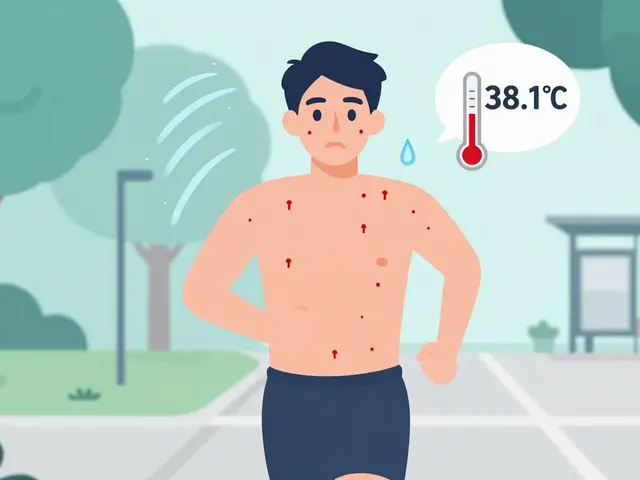
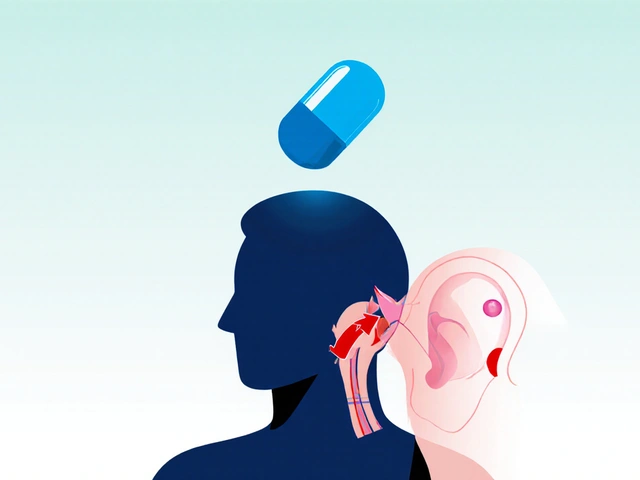
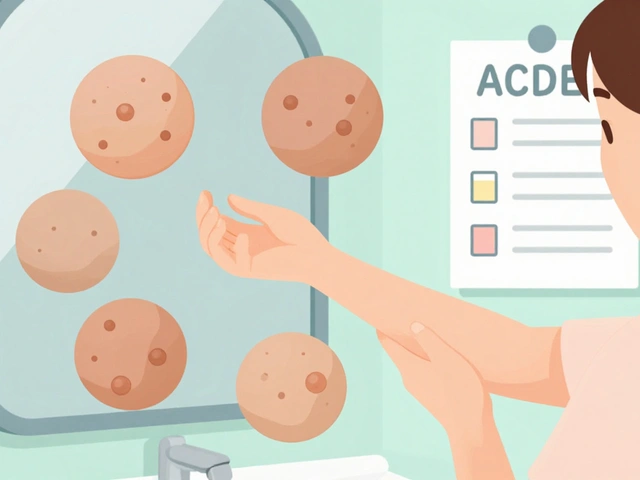
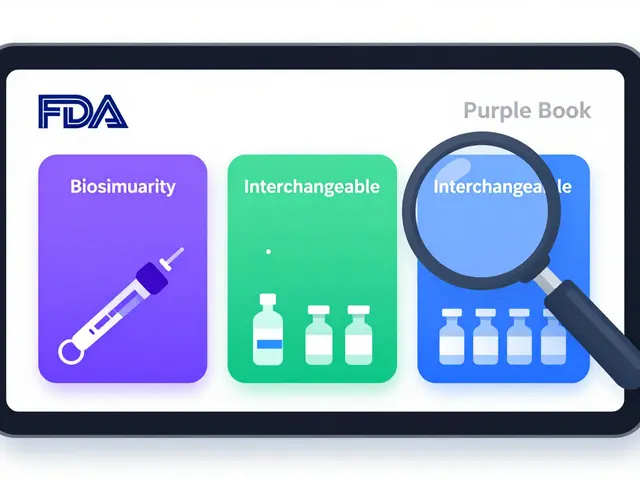

Erika Hunt
November 24, 2025 AT 16:59 PM
Okay, I’ll be real-I’ve got a whole drawer of expired meds, and I’ve been using them for years, mostly ibuprofen and Claritin. I mean, they don’t look weird, don’t smell funny, and I’ve never had a reaction… but now I’m second-guessing everything. The part about humidity ruining pills? Yeah, I keep mine in the bathroom. Oops. I just moved them to a drawer in my bedroom. Also, I didn’t know Tums last forever-I’ve been tossing them like they’re expired yogurt. Maybe I’ll start a ‘Medication Archaeology’ project and catalog what’s still good. Someone needs to make a chart. Or an app. Or both.